2 November 2019, Mogadishu – the National Union of Somali Journalists (NUSOJ) with support from UN Women and the International Federation of Journalists (IFJ) today commemorated in Mogadishu this year’s International Day to End Impunity for Crimes Against Journalists under the theme “End the Violence and Harassment against Women Journalists”.
Over 50 journalists from the local media were joined by senior officials from the federal government and judiciary to remember murdered journalists and to challenge the impunity enjoyed by armed individuals and groups who threaten, attack, torture and murder journalists in Somalia.
In his address to the commemorative event, Somalia’s Justice Minister Hassan Hussein Hajji has vehemently condemned the unpunished crimes against journalists, particularly the impunity of violence and harassment against women journalists. “Somalia had witnessed a significant decrease in the number of harassments, killing and arbitrary arrests since the current Government came into office in early 2017 when compared to the previous years. Our government has likewise taken trustable actions to create favourable environment in which journalists can exercise their basic human rights”.
“Judging by the brutality and extent of dangers and attacks on journalists in direct response to their journalism work, I reaffirm the Federal Government’s solid commitment to bring those responsible for attacks on journalists to justice in order to send a signal that media professionals must not be silenced through violence and other organised crimes, and culprits must not get away with killings and other maltreatments,” said Minister Hassan Hussein Hajji.
During his speech, NUSOJ Secretary General Omar Faruk Osman stated that “journalists in this country have been experiencing persecution, intimidation and physical assaults, yet quick investigations and final verdicts are rare. Indeed, the government has this year taken important and laudable steps against those who attack journalists but impunity persists. We continue to report relentless intimidation and physical and verbal attacks against journalists. Women journalists are victims of deeply ingrained misogynistic attitudes and discriminatory actions in addition to violence directed against them because of their gender. We all need to sincerely stand-up for justice to end the current injustice.”
Speaking on behalf of the judiciary, President of Benadir Regional Court Adv. Muse Moallim Mohamed sent a message to Somali journalists that the courts are ready to punish those who kill or attack journalists but urged them to always use the constitution to defend their right. “Any person who commits crimes against journalist should be prepared to face the full force of the law and our judges are equipped to speedily tackle gender-based violence case with severe punishment. The safety and dignity of Somali women and girls are non-negotiable”, adding “no one is above the rule of law,”.
Awil Mohamud Abdi, President of NUSOJ Supreme Council noted that impunity is miserably a lingering problem that fuels the continued suppression of journalists’ rights in Somalia. “A killer of a journalist is convinced that he will not face justice. In addition to this, women journalists are both legally and physically unsafe in practicing journalism because of their gender. We also need to expose those who provide cover-up for killers of journalists.”
“We are deeply concerned at the ongoing attacks on journalists in number of areas of the country, though the number of murdered journalists has reduced in the past three years. Specially we are worried about the many human rights abuses against women journalists that went unreported. I say this because journalists play a vital role in exposing human rights abuse, and ensuring that journalists, specifically female reporters, are able to carry out their work free from harassment and violence is thus an essential foundation in the defense and promotion of human rights in Somalia” said Deeq Suleyman Yusuf, Director General of the Ministry of Women and Human Rights Development.
During different panels discussions, the participants made concrete recommendations to government to take effective measures to end the practice of violence and harassment against women journalists, ensure accountability and justice for journalists who are victims of human rights violations and abuses and comply with Somalia’s international and continental human rights obligations and commitments.
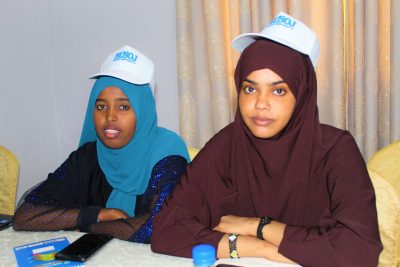
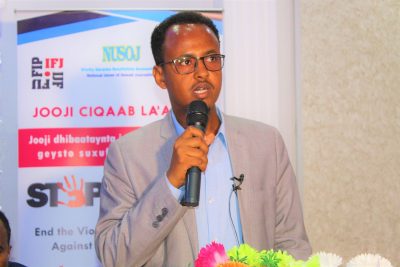
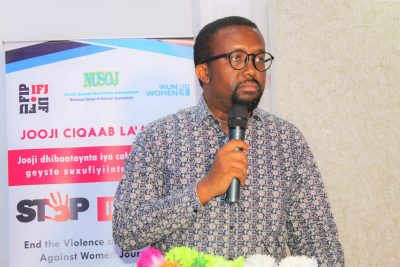
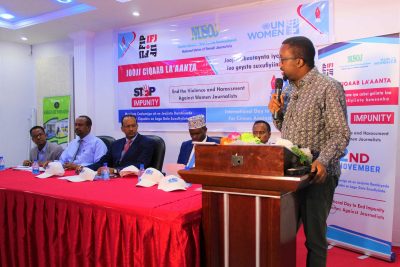
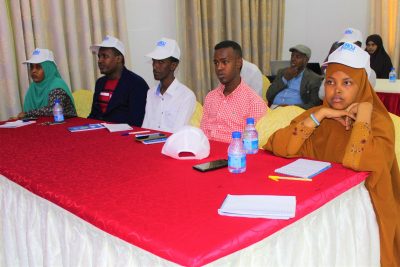
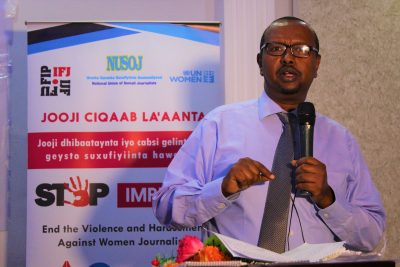
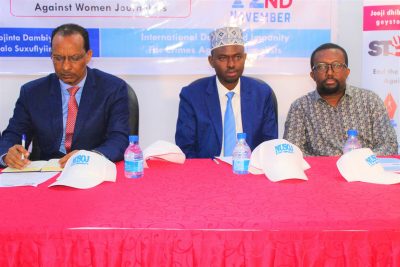
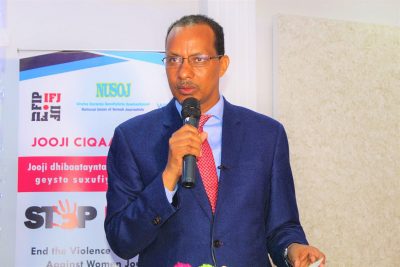
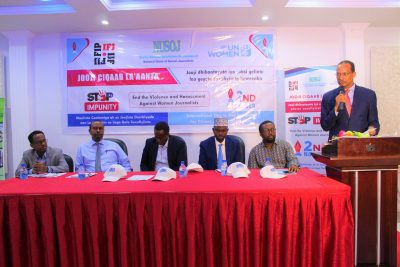
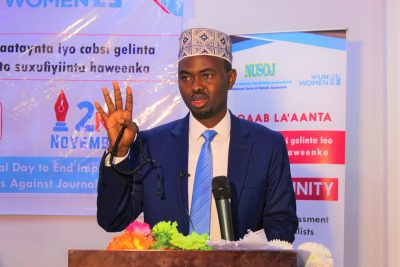
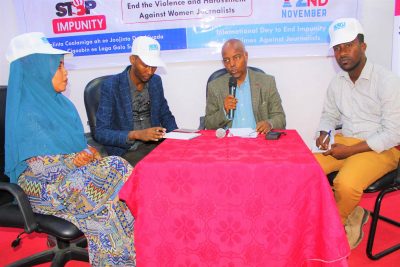
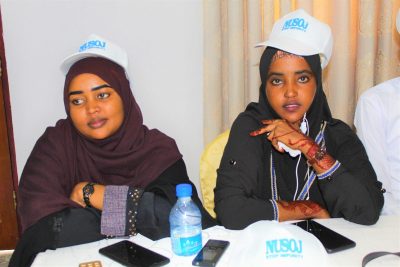


COMMENTS